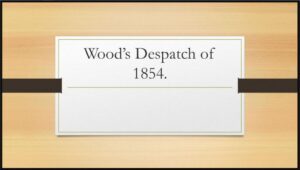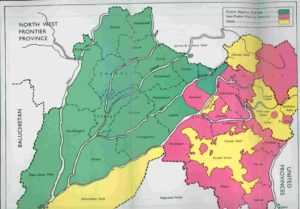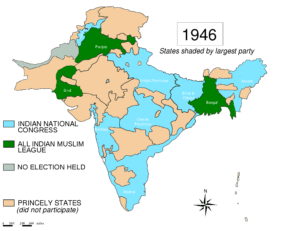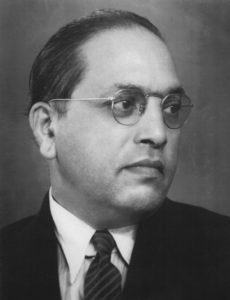Table of Contents
Delhi Proposals December 1927 | UPSC – IAS
Earlier, in December 1927, a large number of Muslim leaders had met at Delhi at the Muslim League session and evolved four proposals for Muslim demands to be incorporated in the draft constitution. These proposals, which were accepted by the Madras session of the Congress (December 1927), came to be known as the ‘Delhi Proposals’. These were
- Joint electorates in place of separate electorates with reserved seats for Muslims;
- One-third representation to Muslims in Central Legislative Assembly;
- Representation to Muslims in Punjab and Bengal in proportion to their population;
- Formation of three new Muslim majority provinces— Sindh, Baluchistan and North-West Frontier Province.
Nehru Report of 1928 | UPSC – IAS
The Nehru Report of 28–30 August, 1928 was a memorandum outlining a proposed new dominion status constitution for India. It was prepared by a committee of the All Parties Conference chaired by Motilal Nehru with his son Jawaharlal Nehru acting as secretary.
The Nehru Report confined itself to British India, as it envisaged the future link-up of British India with the princely states on a federal basis. Nehru report Recommendation are as follows:-
- Dominion status
- No separate electorates, but joint electorates with reserved seats for minorities.
- Linguistic provinces.
- Nineteen fundamental rights including equal rights for women, right to form unions, and universal adult suffrage.
- Responsible government at center and in provinces
- Full protection to cultural and religious interests of Muslims.
- Complete dissociation of state from religion.
Nehru Report of 1928 significance – first major attempt to draft a constitutional framework for the country.
- As an answer to Lord Birkenhead’s challenge, an All Parties Conference met in February 1928 and appointed a subcommittee under the chairmanship of Motilal Nehru to draft a constitution
- Nehru Committee – were unanimous except in one respect – while the majority favoured the “dominion status” as the basis of the Constitution, a section of it wanted “complete independence” as the basis, with the majority section giving the latter section liberty of action. younger section regarded the idea of dominion status in the report as a step backward.
- Main Personalities involved – Tej Bahadur Sapru, Subhash Bose, M.S. Aney, Mangal Singh, Ali Imam, Shuab Qureshi and G.R.
Amendments Proposed by Jinnah | UPSC – IAS
At the All Parties Conference held at Calcutta in December 1928 to consider the Nehru Report, Jinnah, on behalf of the Muslim League, proposed three amendments to the report:
- One-third representation to Muslims in the Central Legislature
- Reservation to Muslims in Bengal and Punjab legislatures proportionate to their population, till adult suffrage was established
- Residual powers to provinces.
These demands not being accommodated, Jinnah went back to the Shafi faction of the Muslim League and in March 1929 gave fourteen points which were to become the basis of all future propaganda of the Muslim League.
Jinnah’s Fourteen Demands | UPSC – IAS
- Federal Constitution with residual powers to provinces.
- Provincial autonomy.
- No constitutional amendment by the centre without the concurrence of the states constituting the Indian federation.
- All legislatures and elected bodies to have adequate representation of Muslims in every province without reducing a majority of Muslims in a province to a minority or equality.
- Adequate representation to Muslims in the services and in self governing bodies.
- One-third Muslim representation in the Central Legislature.
- In any cabinet at the centre or in the provinces, one third to be Muslims.
- Separate electorates.
- No bill or resolution in any legislature to be passed if three fourths of a minority community consider such a bill or resolution to be against their interests.
- Any territorial redistribution not to affect the Muslim majority in Punjab, Bengal and NWFP.
- Separation of Sindh from Bombay.
- Constitutional reforms in the NWFP and Balochistan.
- Full religious freedom to all communities.
- Protection of Muslim rights in religion, culture, education and language.
Not only were the Muslim League, the Hindu Mahasabha and the Sikh communalists unhappy about the Nehru Report, but the younger section of the Congress led by Jawaharlal Nehru and Subhash Bose were also angered. The younger section regarded the idea of dominion status in the report as a step backward, and the developments at the All Parties Conference strengthened their criticism of the dominion status idea. Nehru and Subhash Bose rejected the Congress’ modified goal and jointly set up the Independence for India League.



